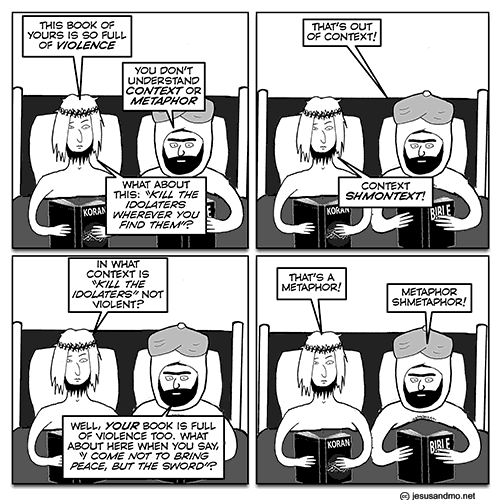A representative of that strange creature, Woman, does a profile of Jordan Peterson in the Times.
Mr. Peterson, 55, a University of Toronto psychology professor turned YouTube philosopher turned mystical father figure, has emerged as an influential thought leader.
Not to be confused with an intellectual or scholar or thinker. He’s more like Jim Jones.
The messages he delivers range from hoary self-help empowerment talk (clean your room, stand up straight) to the more retrograde and political (a society run as a patriarchy makes sense and stems mostly from men’s competence; the notion of white privilege is a farce). He is the stately looking, pedigreed voice for a group of culture warriors who are working diligently to undermine mainstream and liberal efforts to promote equality.
Along with Sam Harris and Dave Rubin and so on – the brightly lit “Intellectual Dark Web.”
He lets the writer, Nellie Bowles, hang out with him for two days.
He does not smile. He has a weathered, gaunt face and big furrowed eyebrows. He has written about dogs being closest in behavior to humans, but there is something extremely feline about him. He always wears a suit. “I am a very serious person,” he often says.
He sounds unbearable already.
Wherever he goes, he speaks in sermons about the inevitability of who we must be. “You know you can say, ‘Well isn’t it unfortunate that chaos is represented by the feminine’ — well, it might be unfortunate, but it doesn’t matter because that is how it’s represented. It’s been represented like that forever. And there are reasons for it. You can’t change it. It’s not possible. This is underneath everything. If you change those basic categories, people wouldn’t be human anymore. They’d be something else. They’d be transhuman or something. We wouldn’t be able to talk to these new creatures.”
Says the guy from the sex that is not represented as being chaos. It’s always fascinating to see people breezily explain why other people are consigned to inferior categories while they float above in the gilded empyrean.
[H]e was radicalized, he says, because the “radical left” wants to eliminate hierarchies, which he says are the natural order of the world. In his book he illustrates this idea with the social behavior of lobsters. He chose lobsters because they have hierarchies and are a very ancient species, and are also invertebrates with serotonin. This lobster hierarchy has become a rallying cry for his fans; they put images of the crustacean on T-shirts and mugs.
The left, he believes, refuses to admit that men might be in charge because they are better at it. “The people who hold that our culture is an oppressive patriarchy, they don’t want to admit that the current hierarchy might be predicated on competence,” he said.
In other words that men, all men, men as such, are better than women, all women, women as such. Yes, he’s right, we don’t want to “admit” that, partly because it’s obviously not true.
Rather than making an argument he babbles about myths.
“It makes sense that a witch lives in a swamp. Yeah,” he says. “Why?”
It’s a hard one.
“Right. That’s right. You don’t know. It’s because those things hang together at a very deep level. Right. Yeah. And it makes sense that an old king lives in a desiccated tower.”
But witches don’t exist, and they don’t live in swamps, I say.
“Yeah, they do. They do exist. They just don’t exist the way you think they exist. They certainly exist. You may say well dragons don’t exist. It’s, like, yes they do — the category predator and the category dragon are the same category. It absolutely exists. It’s a superordinate category. It exists absolutely more than anything else. In fact, it really exists. What exists is not obvious. You say, ‘Well, there’s no such thing as witches.’ Yeah, I know what you mean, but that isn’t what you think when you go see a movie about them. You can’t help but fall into these categories. There’s no escape from them.”
Or from animated mice and rabbits and whatever Goofy is, too. Those stories and animations really exist. Therefore, patriarchy is best.
Bowles mentions Alek Minassian and the ten people he killed.
Violent attacks are what happens when men do not have partners, Mr. Peterson says, and society needs to work to make sure those men are married.
“He was angry at God because women were rejecting him,” Mr. Peterson says of the Toronto killer. “The cure for that is enforced monogamy. That’s actually why monogamy emerges.”
Mr. Peterson does not pause when he says this. Enforced monogamy is, to him, simply a rational solution. Otherwise women will all only go for the most high-status men, he explains, and that couldn’t make either gender happy in the end.
But being forcibly married will make them all ecstatic, for sure.
“Half the men fail,” he says, meaning that they don’t procreate. “And no one cares about the men who fail.”
I laugh, because it is absurd.
“You’re laughing about them,” he says, giving me a disappointed look. “That’s because you’re female.”
Because he’s a Thought Leader, he didn’t call her a bitch. You know he was thinking it though.
But aside from interventions that would redistribute sex, Mr. Peterson is staunchly against what he calls “equality of outcomes,” or efforts to equalize society. He usually calls them pathological or evil.
He’s like the new Ayn Rand, but hotter.
Bowles sits in on a paid-for Skype conversation with one of Peterson’s acolytes.
At one point in the discussion, Mr. Peterson, who had been relatively quiet, becomes heated on the topic of women who find marriage oppressive.
“So I don’t know who these people think marriages are oppressing,” he says. “I read Betty Friedan’s book because I was very curious about it, and it’s so whiny, it’s just enough to drive a modern person mad to listen to these suburban housewives from the late ’50s ensconced in their comfortable secure lives complaining about the fact that they’re bored because they don’t have enough opportunity. It’s like, Jesus get a hobby. For Christ’s sake, you — you — ”
Worth every penny of the $200 for 45 minutes.
“Jordan’s exposed something that’s been festering for a long time,” says Justin Trottier, 35, the co-founder of the men’s rights organizations Equality Canada and Canadian Centre for Men and Families. “Jordan’s forced people to pay attention.”
Mr. Trottier made headlines when his group called the anti-manspreading subway initiatives sexist. Their musty space hosts events in which men discuss the prejudices they perceive against them. One of their group’s main goals is “waking the police up” to female-perpetrated domestic violence, Mr. Trottier says.
Now, “there’s more acceptance of what we’re trying to do,” he says.
Oh lord. I know him slightly. He used to be the Executive Director of CFI Canada, and he was at the Ottawa conference in 2012. Peterson is an older Justin Trottier.
There are now regular Jordan Peterson discussion groups. The one in Toronto meets once a week at a restaurant called Hemingway’s and is run by Chris Shepherd, who used to be a professional pickup artist who coached men on how to get laid fast at a club but is now a dating coach.
Mr. Shepherd first encountered Mr. Peterson in a viral video of the professor getting yelled at by campus activists. Watching the stoic professor take on righteous liberal anger touched Mr. Shepherd.
Of course it did. Rape-advisors (aka pickup artists) are such an embattled population these days.
A few comments on Twitter.
https://twitter.com/JessicaValenti/status/997489897777827842
https://twitter.com/helenlewis/status/997517533056991232


